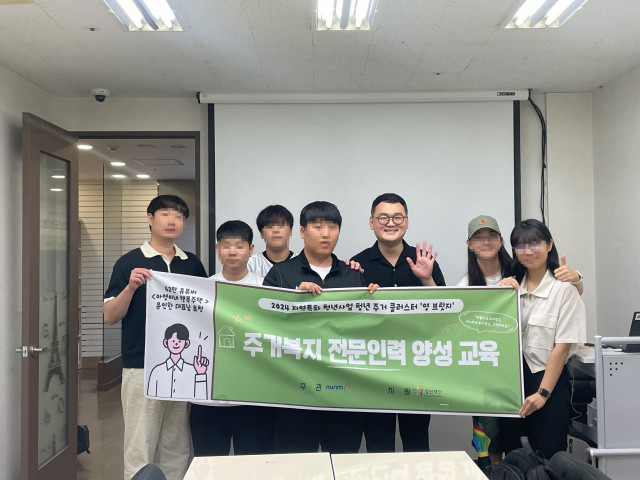Takeda Receives Approval for FRUZAQLA (fruquintinib) in Japan for the …
OSAKA, JAPAN & CAMBRIDGE, MASS.--(Business Wire / Korea Newswire)--Takeda (TSE:4502/NYSE:TAK) today announced that it has received approval from the Japanese Ministry of Health, Labour and Welfare to manufacture and market FRUZAQLA Capsules 1mg/5mg (generic name: fruquintinib), a selective oral inhibitor of vascular endothelial growth factor receptor (VEGFR) -1, -2 and -3, for the treatment of advanced or recurrent colorectal cancer (CRC) that is neither curable nor resectable and that has progressed after chemotherapy.
The approval is based primarily on the results of the FRESCO-2 trial, a global Phase 3 clinical trial conducted in the United States, Europe, Japan and Australia. The trial compared FRUZAQLA plus best supportive care (BSC) with placebo plus BSC in patients with previously treated metastatic colorectal cancer (mCRC). The FRESCO-2 trial met all primary and key secondary efficacy endpoints and demonstrated consistent benefits in patients who received FRUZAQLA, regardless of the types of therapy the patients had previously received. FRUZAQLA demonstrated a manageable safety profile in the FRESCO-2 trial, with the incidence of adverse events leading to discontinuation being 21% in the placebo plus BSC arm compared to 20% in the FRUZAQLA plus BSC arm.1 The data from the FRESCO-2 trial were published in The Lancet in June 2023.
Dr. Takayuki Yoshino, deputy director of hospital, head, Division for the Promotion of Drug and Diagnostic Development, and chief, Department of Gastrointestinal Oncology at the National Cancer Center Hospital East, who served on the FRESCO-2 study Steering Committee, said, “Although the mortality rate of colorectal cancer has been going down in recent years due to early screening and advances in treatment, the 5-year survival rate for metastatic colorectal cancer remains low and new treatment options are much in need. The approval of FRUZAQLA in Japan offers new hope for patients and families of patients with metastatic colorectal cancer, as well as for healthcare personnel involved in colorectal cancer treatment. I feel that it is of great clinical significance.”
“For more than a decade, Takeda has been a leader in advancing the treatment of metastatic colorectal cancer in Japan. With this approval of FRUZAQLA, we are able to further support patients living with this debilitating disease,” said Teresa Bitetti, president of the Global Oncology Business Unit at Takeda. “FRUZAQLA is now approved in the U.S., European Union, Japan and a number of other countries around the world, and we remain committed to bringing this treatment to additional patients with metastatic colorectal cancer around the world who urgently need new therapeutic options.”
About FRUZAQLA (fruquintinib)
FRUZAQLA is a selective oral inhibitor of all three VEGF receptors (-1, -2 and -3). VEGFR inhibitors play a pivotal role in blocking tumor angiogenesis. FRUZAQLA was designed to have enhanced selectivity that limits off-target kinase activity, allowing for drug exposure achieving sustained target inhibition and flexibility for potential use as part of combination therapy.
Takeda has the exclusive worldwide license to further develop, commercialize, and manufacture fruquintinib outside of mainland China, Hong Kong and Macau. FRUZAQLA was approved by the U.S. Food and Drug Administration (FDA) in November 2023 and by the European Commission (EC) in June 2024. Fruquintinib is developed and marketed in China by HUTCHMED. Fruquintinib was approved for marketing by the China National Medical Products Administration (NMPA) in September 2018 and commercially launched in China in November 2018 under the brand name ELUNATE®.
JAPAN IMPORTANT SAFETY INFORMATION
Please consult the FRUZAQLA (fruquintinib) Japan package insert (J-PI) before prescribing.
WARNING: FRUZAQLA should be administered only to patients for whom the use of FRUZAQLA is considered appropriate under the supervision of a physician with sufficient knowledge of and experience in cancer chemotherapy at a medical institution where adequate emergency care can be provided. Prior to treatment initiation, the efficacy and risks should be fully explained to the patient and/or his/her family and informed consent should be obtained; Severe gastrointestinal hemorrhage, including fatal cases, has been reported. Patients should be carefully monitored, and if any abnormalities are observed, administration of FRUZAQLA should be withheld and appropriate measures should be taken. If severe hemorrhage occurs, FRUZAQLA should not be re-administered; Gastrointestinal perforation has been reported with some fatal cases. Patients should be carefully monitored, and if any abnormalities are observed, administration of FRUZAQLA should be withheld and appropriate measures should be taken. If gastrointestinal perforation occurs, FRUZAQLA should not be re-administered.
CONTRAINDICATIONS: Patients with a history of hypersensitivity to any of the ingredients of FRUZAQLA.
IMPORTANT PRECAUTIONS: Hypertension, including hypertensive crisis, may occur. Blood pressure should be measured prior to the initiation of FRUZAQLA treatment and periodically during this treatment; Proteinuria may occur. Urinary protein should be monitored prior to the initiation of FRUZAQLA treatment and periodically during this treatment; If a surgical procedure is to be performed, patients are recommended to withhold FRUZAQLA before the surgery because wound healing may be delayed. Treatment resumption after the surgical procedure should be determined depending on the patient's condition upon confirmation of adequate wound healing.
PRECAUTIONS CONCERNING PATIENTS WITH SPECIFIC BACKGROUNDS: Patients with hypertension: Hypertension may worsen; Patients with bleeding diathesis or abnormal coagulation system: Hemorrhagic events may occur; Patients with hemorrhage such as gastrointestinal hemorrhage: Hemorrhage may be enhanced; Patients with a complication of intra-abdominal inflammation in the gastrointestinal tract, etc.: Gastrointestinal perforation may occur; Patients with current or a history of thromboembolism: Transient ischaemic attack, thrombotic microangiopathy, pulmonary embolism, portal vein thrombosis, deep vein thrombosis, etc. may occur; Patients with severe hepatic impairment (Child-Pugh Class C): Since FRUZAQLA is metabolized mainly in the liver, blood concentrations may be increased. There have been no clinical studies conducted in patients with severe hepatic impairment; Patients with Reproductive Potential: Women of childbearing potential should be advised to use adequate contraception during treatment with FRUZAQLA and for 2 weeks after the last dose; Pregnant Women: FRUZAQLA can be administered to women who are or may be pregnant only if the expected therapeutic benefits outweigh the possible risks associated with this treatment. In a rat embryo-fetal toxicity study, fetal abnormalities and teratogenic effects consisting of fetal external, visceral, and skeletal malformations and visceral and skeletal variations were observed at exposure levels approximately 0.05 times the exposure level (AUC) of FRUZAQLA at the maximum clinical dose (5 mg/day); Breast-feeding Women: It is advisable not to breastfeed. FRUZAQLA may pass into breast milk, and infants may experience serious adverse reactions if they are ingested through breast milk; Pediatric Use: There have been no clinical studies conducted in pediatric patients.
ADVERSE REACTIONS:
Any of the adverse reactions listed below may occur. Patients should be closely monitored, and if any such abnormalities are observed, appropriate measures should be taken, including treatment discontinuation. Clinically Significant Adverse Reactions are follows.
Hypertension: Hypertension or hypertensive crisis may occur. If an increase in blood pressure is observed, appropriate treatment such as antihypertensive drug administration should be given as necessary, and if necessary, the dose of fruquintinib should be reduced, or fruquintinib administration should be interrupted. If severe or persistent hypertension, or hypertension that cannot be controlled by routine antihypertensive therapy occurs or if a hypertensive crisis occurs, fruquintinib administration should be discontinued; Skin disorder: Skin disorder including palmar-plantar erythrodysesthesia syndrome and rash may occur; Hemorrhage: Hemorrhage including epistaxis, hematuria, gastrointestinal hemorrhage and hemoptysis may occur. Fatal outcomes have been reported; Gastrointestinal perforation: Fatal outcomes have been reported; Arterial thromboembolic events: Arterial thromboembolic events including transient ischemic attack and thrombotic microangiopathy may occur; Venous thromboembolism events: Venous thromboembolism such as pulmonary embolism, portal vein thrombosis, and deep vein thrombosis may occur; Posterior reversible encephalopathy syndrome: If headaches, convulsions, lethargy, confusion, changes in mental function, blindness or other visual disturbances, or neurological impairment are observed, fruquintinib administration should be discontinued, and appropriate measures should be taken, including blood pressure control; Arterial dissection: Arterial dissection including aortic dissection may occur.
For US Prescribing Information: https://www.fruzaqla.com/sites/default/files/resources/fruzaqla-prescribing-information.pdf
For European Union Summary of Product Characteristics: https://www.ema.europa.eu/en/medicines/human/EPAR/fruzaqla
About the Phase 3 FRESCO-2 Trial
The FRESCO-2 study is a multi-regional clinical trial conducted in the U.S., Europe, Japan and Australia investigating FRUZAQLA plus BSC vs placebo plus BSC in patients with previously treated mCRC (NCT04322539). The study met all of its primary and key secondary endpoints, demonstrating that treatment with FRUZAQLA resulted in statistically significant and clinically meaningful improvement in overall survival and progression-free survival. The safety profile of FRUZAQLA in FRESCO-2 was consistent with previously reported fruquintinib monotherapy studies. Results from the study were presented at ESMO in September 2022 and subsequently published in The Lancet in June 2023.[2,1]
Takeda’s Commitment to Colorectal Cancer in Japan
CRC is the most prevalent type of cancer in Japan, with an estimated 161,000 new cases and 54,000 deaths in 2023, according to the National Cancer Center’s statistics.[3] While early-stage CRC can be surgically resected, mCRC remains an area of high unmet need with patients awaiting new treatment options, given its poor prognosis and limited treatment options.[4-8] For over a decade, we have contributed to the treatment of patients with late-stage CRC who have limited treatment options and to the advancement of personalized treatment through the provision of innovative medicines and the generation of relevant evidence. Moving forward, we will continue our work to treat patients with CRC and address their unmet needs.
About Takeda
Takeda is focused on creating better health for people and a brighter future for the world. We aim to discover and deliver life-transforming treatments in our core therapeutic and business areas, including gastrointestinal and inflammation, rare diseases, plasma-derived therapies, oncology, neuroscience and vaccines. Together with our partners, we aim to improve the patient experience and advance a new frontier of treatment options through our dynamic and diverse pipeline. As a leading values-based, R&D-driven biopharmaceutical company headquartered in Japan, we are guided by our commitment to patients, our people and the planet. Our employees in approximately 80 countries and regions are driven by our purpose and are grounded in the values that have defined us for more than two centuries. For more information, visit www.takeda.com.
Important Notice
For the purposes of this notice, “press release” means this document, any oral presentation, any question and answer session and any written or oral material discussed or distributed by Takeda Pharmaceutical Company Limited (“Takeda”) regarding this release. This press release (including any oral briefing and any question-and-answer in connection with it) is not intended to, and does not constitute, represent or form part of any offer, invitation or solicitation of any offer to purchase, otherwise acquire, subscribe for, exchange, sell or otherwise dispose of, any securities or the solicitation of any vote or approval in any jurisdiction. No shares or other securities are being offered to the public by means of this press release. No offering of securities shall be made in the United States except pursuant to registration under the U.S. Securities Act of 1933, as amended, or an exemption therefrom. This press release is being given (together with any further information which may be provided to the recipient) on the condition that it is for use by the recipient for information purposes only (and not for the evaluation of any investment, acquisition, disposal or any other transaction). Any failure to comply with these restrictions may constitute a violation of applicable securities laws.
The companies in which Takeda directly and indirectly owns investments are separate entities. In this press release, “Takeda” is sometimes used for convenience where references are made to Takeda and its subsidiaries in general. Likewise, the words “we”, “us” and “our” are also used to refer to subsidiaries in general or to those who work for them. These expressions are also used where no useful purpose is served by identifying the particular company or companies.
Forward-Looking Statements
This press release and any materials distributed in connection with this press release may contain forward-looking statements, beliefs or opinions regarding Takeda’s future business, future position and results of operations, including estimates, forecasts, targets and plans for Takeda. Without limitation, forward-looking statements often include words such as “targets”, “plans”, “believes”, “hopes”, “continues”, “expects”, “aims”, “intends”, “ensures”, “will”, “may”, “should”, “would”, “could”, “anticipates”, “estimates”, “projects” or similar expressions or the negative thereof. These forward-looking statements are based on assumptions about many important factors, including the following, which could cause actual results to differ materially from those expressed or implied by the forward-looking statements: the economic circumstances surrounding Takeda’s global business, including general economic conditions in Japan and the United States; competitive pressures and developments; changes to applicable laws and regulations, including global health care reforms; challenges inherent in new product development, including uncertainty of clinical success and decisions of regulatory authorities and the timing thereof; uncertainty of commercial success for new and existing products; manufacturing difficulties or delays; fluctuations in interest and currency exchange rates; claims or concerns regarding the safety or efficacy of marketed products or product candidates; the impact of health crises, like the novel coronavirus pandemic, on Takeda and its customers and suppliers, including foreign governments in countries in which Takeda operates, or on other facets of its business; the timing and impact of post-merger integration efforts with acquired companies; the ability to divest assets that are not core to Takeda’s operations and the timing of any such divestment(s); and other factors identified in Takeda’s most recent Annual Report on Form 20-F and Takeda’s other reports filed with the U.S. Securities and Exchange Commission, available on Takeda’s website at: https://www.takeda.com/investors/sec-filings-and-security-reports/ or at www.sec.gov. Takeda does not undertake to update any of the forward-looking statements contained in this press release or any other forward-looking statements it may make, except as required by law or stock exchange rule. Past performance is not an indicator of future results and the results or statements of Takeda in this press release may not be indicative of, and are not an estimate, forecast, guarantee or projection of Takeda’s future results.
Medical Information
This press release contains information about products that may not be available in all countries, or may be available under different trademarks, for different indications, in different dosages, or in different strengths. Nothing contained herein should be considered a solicitation, promotion or advertisement for any prescription drugs including the ones under development.
References:
[1] Dasari NA, et al. Fruquintinib versus placebo in patients with refractory metastatic colorectal cancer (FRESCO-2): an international, multicentre, randomised, double-blind, phase 3 study. Lancet. 2023;402(10395):41-53. doi:10.1016/S0140-6736(23)00772-9.
[2] Dasari NA, et al. LBA25 - FRESCO-2: A global phase 3 multiregional clinical trial (MRCT) evaluating the efficacy and safety of fruquintinib in patients with refractory metastatic colorectal cancer. Ann Oncol. 2022 Sep;33(suppl_7): S808-S869. Doi:10.1016/annonc/annonc1089.
[3] Foundation for Promotion of Cancer Research. Cancer Statistics In Japan. Tokyo, Foundation for Promotion of Cancer Research; 2023.
[4] Bando H, et al. Therapeutic landscape and future direction of metastatic colorectal cancer. Nat Rev Gastroenterol Hepatol 2023; 20(5)306-322. doi:10.1038/s41575-022-00736-1.
[5] D'Haene N, et al. Clinical application of targeted next-generation sequencing for colorectal cancer patients: a multicentric Belgian experience. Oncotarget. 2018;9(29):20761-20768. Published 2018 Apr 17. doi:10.18632/oncotarget.25099.
[6] Venderbosch, et al. Mismatch repair status and braf mutation status in metastatic colorectal cancer patients: A pooled analysis of the Cairo, Cairo2, coin, and Focus Studies. Clinical Cancer Res.,2014; 20(20):5322-5330. doi:10.1158/1078-0432.ccr-14-0332.
[7] Koopman, M., et al. Deficient mismatch repair system in patients with sporadic advanced colorectal cancer. Br J Cancer. 209;100(2), 266-273. doi:10.1038/sj.bjc.6604867.
[8] Ahcene Djaballah S, et al. HER2 in Colorectal Cancer: The Long and Winding Road From Negative Predictive Factor to Positive Actionable Target.Am Soc Clin Oncol Educ Book. 2022;42:1-14. doi:10.1200/EDBK_351354.
View source version on businesswire.com: https://www.businesswire.com/news/home/20240918509211/en/
Website: https://www.takeda.com/




